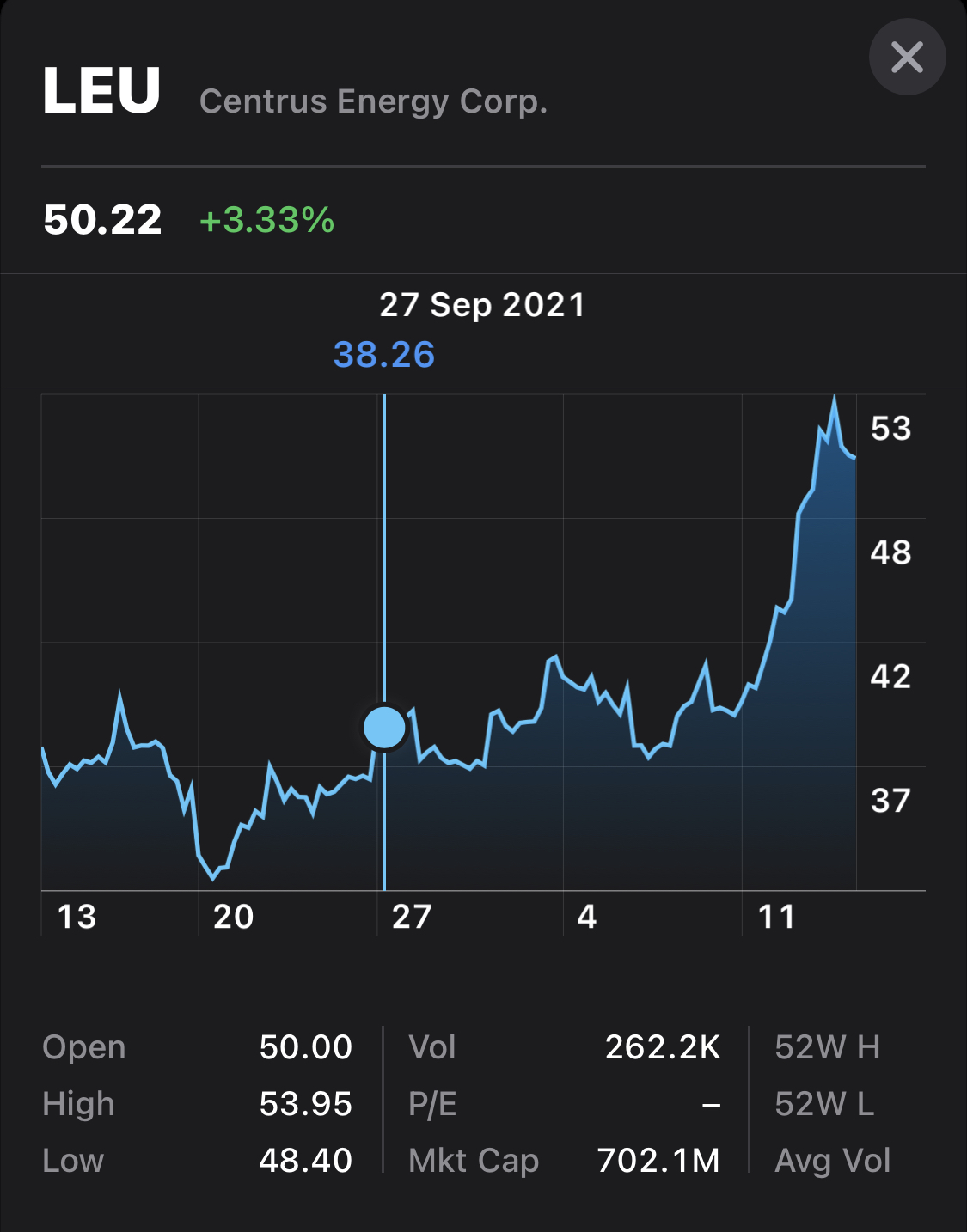Energy Evolutions: focusing on oil, natural gas, coal and uranium
Recent podcasts you may care to listen to
Why the race to net zero carbon is having unintended effect on fossil fuel prices
This is the first of a series of articles that I intend to write on the impact of ESG (Environmental, Social and Governance) investing, and the race to combat climate change.
This first article focuses on the recent upheavals in the energy markets, zooming in on the huge movements of late in electricity and natural gas prices, and uranium to boot.
So what's going on at the moment? When we look at energy prices in the US and Europe, quite clearly a sharp jump in a range of energy prices, be they electricity prices, natural gas, oil or uranium.
Targeting a net zero carbon future
In the US, President Biden yet again spoke this week about the need for the US to achieve carbon neutrality. He has set a target in the US of being carbon neutral in terms of electricity generation by 2025. Frankly, this seems extremely difficult to achieve, and I'm not sure how he is intending to get there in the next 4 years.
If we look at US electricity generation today, it remains largely reliant on fossil fuels. In 2021, the predominant fuels used for electricity generation have thus far been natural gas and coal (c. 58% of total electricity production in the first 5 months of 2021). Renewable energy (solar, wind, geothermal, hydro) only generated 22% of Jan-May 2021’s electricity production. This is hardly compatible with moving to a net zero carbon future in the next four years.
US electricity generation dominated by natural gas, coal
Source: US Energy Information Administration
Turning to Europe, we see a similar story. Germany, in my view, committed the cardinal error of renouncing nuclear energy in the wake of the 2011 Fukushima disaster. Now, 10 years later, they are even more reliant than ever on fossil fuels, namely natural gas from Russia and coal, including very dirty lignite. How are Germany going to achieve a net zero carbon future when they are still burning very dirty coal in 2021, and particularly if they are to stick to their current plan…












